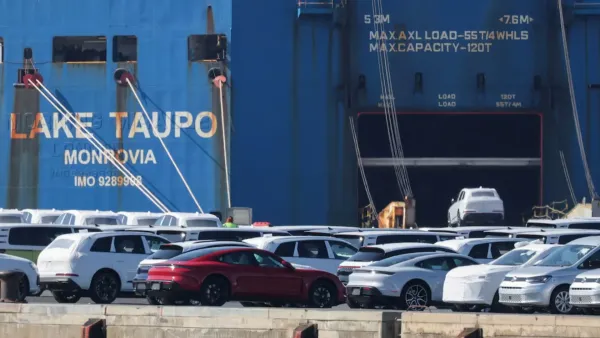
The ripple effects of President Donald Trump’s sweeping tariff policies continued to batter corporate America on Tuesday, with major firms slashing jobs, suspending forecasts, and delaying investor guidance amid escalating uncertainty in global markets, Reuters reported. United Parcel Service (UPS) announced it would cut 20,000 jobs in response to declining volumes, particularly from its largest customer, Amazon, and a cooling economic climate, the report said. The layoffs come as part of a cost-cutting effort designed to weather what the company called an “uncertain economy.”
Pulling its 2025 financial forecast, General Motors (GM) reportedly delayed its quarterly investor call until Thursday, pending possible adjustments to U.S. trade policy.
“We believe the future impact of tariffs could be significant,” GM Chief Financial Officer Paul Jacobson told Reuters, adding, “We’re telling folks not to rely on the prior guidance, and we’ll update when we have more information around tariffs.”
Kraft Heinz, Electrolux, and Hilton also joined a growing list of multinational corporations lowering their outlooks, citing disruption caused by Trump’s trade actions.
According to a Reuters analysis, about 40 major global companies have pulled or downgraded their earnings guidance within just the first two weeks of the Q1 earnings season. Among the most affected are Volvo Cars, Delta Air Lines, Logitech and Diageo.
Kraft Heinz trimmed its annual forecast, while Hilton lowered its 2025 revenue growth expectations. Swedish appliance maker Electrolux and German automaker Porsche AG both slashed their full-year projections. According to the report, Porsche said U.S. import tariffs had already cost it at least €100 million ($114 million) across April and May.
“There is so much volatility, there is so much information coming in, some of which is reliable, some of which is not,” Reuters quoted Porsche CFO Jochen Breckner as saying. The company would likely have to pass on increased tariff costs to U.S. consumers through higher vehicle prices, Breckner hinted.
The auto industry has been particularly hard hit, as Trump’s proposed 25% tariffs on car imports raise fears of significantly higher consumer prices. Porsche, which has no production in the U.S., and Volvo, which exports most of its U.S.-bound vehicles from Europe, are among the most exposed, the report further said
Though the White House announced Tuesday it would soften the impact of some auto tariffs, that partial relief has done little to calm jittery markets or revive investor confidence. Stocks and the dollar rose slightly on the news, but global markets remained well below their early April levels when the tariffs were first outlined.